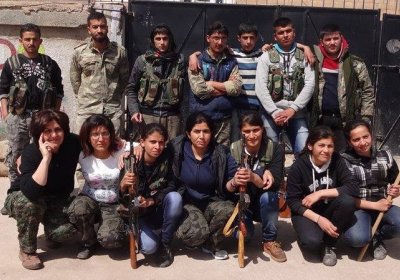Christianity, Islam and Atheism: reflections on Religion, Society and Politics
By Micheal Cooke
Resistance Books 2014
124 pages, paperback, $15
For a time I stopped referring to myself as an atheist in public. I was intensely embarrassed by seeing ads on buses promoting atheism around the time of the World Atheist Conference in Melbourne.
For a while I simply became “not religious” for public purposes. I found it embarrassing because public evangelism is the one thing that particularly galls me about religion.
1026
The High Court ruled on September 11 that an asylum seeker given a temporary visa should be allowed to apply for permanent protection. It said that immigration minister Scott Morrison's issuing of a form of temporary protection visa to a Rohingya man was "invalid".
The court said an asylum seeker can only be detained for the purpose of removing them from the country, assessing whether to grant them a permanent visa, or assessing whether to allow them to apply for a visa to live in Australia.
Since September 15, the city of Kobane in the Kurdish-majority liberated area of Rojava in northern Syria has been under intense attack by the murderous forces of the self-styled "Islamic State (IS)".
In July, Kobane (Arabic name: Ayn al-Arab) was besieged by 5000 IS thugs armed with US heavy weapons seized from the disintegrating Iraqi army. The defenders managed to hold out and inflict a heavy defeat on the IS gangs. But this time the attack appears far more serious.
It appears that the much-talked up budget crisis has disappeared because Tony Abbott’s government is spending big on war.
The Coalition government has quickly allocated half a billion dollars a year to join the new war on Iraq by another US-led “coalition of the willing”, or — if we call it what it is — a “coalition for the killing”.
The ABC's 7.30 program said on September 15 that the Australian government has "invested a billion dollars buying into a state-of-the-art military satellite system".
The People’s Bill, an initiative of the Lock the Gate Alliance to oppose the growing coal seam gas and coal industries, was launched in Brisbane on September 4.
The People’s Common Rights and Provisions Bill 2014 would amend the Mineral Resources Act to give land holders, local governments, Aboriginal communities and others the power to deny mining companies access to their land.
United States President Barack Obama pledged on June 30 that in the face of Republican intransigence on immigration, he would take executive action to ease the plight of undocumented immigrants facing deportation.
On September 6, the White House announced that it would delay any action until after the November midterm election.
Cristina Jimenez, managing director for United We Dream, an advocacy coalition for immigrants largely made up of young Latinos, said: “The President’s latest broken promise is a slap in the face of the Latino and immigrant communities.”
A fortnight out from Brazil’s October 5 national elections, the big news is the significant surge in support for Marina Silva, with some polls predicting the former Workers’ Party (PT) government minister and environmental activist could end up winning the presidential race.
Incumbent president and PT candidate Dilma Rousseff maintains a narrow lead over Silva, but the election will almost certainly go to a second round run-off on October 26.
Prime Minister Tony Abbott has committed Australia to join the US’s latest military intervention in the Middle East. About 600 Australian military personnel and aircraft operating from a base in the United Arab Emirates will join US forces in bombing Islamic State forces in Iraq and assisting the Kurdistan Regional Government with weapons and training.
‘HUMANITARIAN’ WARMAKING
Yet again, the Fair Work Building Industry Inspectorate (a federal government body set up to attack unions in the building industry) has launched legal action in the Federal Court against the Construction Forestry Mining Energy Union (CFMEU).
The inspectorate said on September 12 that CFMEU organiser Theo Theodorou was alleged to have told the director of a demolition company wishing to work at a Carlton building site that: “as [the demolition company] is working in the city, it needs to obtain an enterprise agreement with the CFMEU for its employees”.
Cables sent from the US Embassy in Quito during Rafael Correa’s first three years as president document rising tensions between Ecuador and the US.
Correa’s government, first elected in 2006, increasingly rejected US hegemony and asserted control over Ecuador’s economic and political development.
The cables highlight the embassy’s preoccupation with Ecuador’s “difficult investment climate”, with many reports attempting to assess and predict Correa’s economic policies.
More than 800 police carried out simultaneous raids on houses in Sydney and Brisbane on September 18. Fifteen people were detained as a result, but only two were charged.
The high profile police raid – coordinated with the media – has been described as the “nation’s biggest counter terrorism operation in history”. It comes one week before the government plans to bring anti-democratic “terror laws” to a vote in parliament and as troops are deployed for a new Iraq war.
A meeting of about 200 union delegates and activists, organised by Unions NSW on September 17, unanimously supported a call for statewide action against the federal budget to defend jobs, workers’ rights and services.
Unionists concerned that Unions NSW was failing to lead a campaign against the budget attacks drafted the motion, which was moved from the floor. Initially, Unions NSW Secretary Mark Lennon told the group there would not be time to move the motion.
However, just before the meeting closed the motion was put to the vote and unanimously supported.
- Page 1
- Next page









